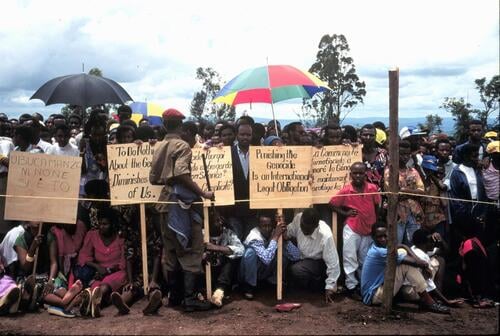MSF's work had included assistance to displaced persons, war surgery, programs for unaccompanied children and street children, support to victims traumatised by the conflict, programs to improve access to health care, responding to epidemics such as malaria, cholera, and tuberculosis, and projects linked to maternal and reproductive health.

A day in a refugee camp clinic in Burundi

'I try to stay unknown as much as I can' - Portrait of a Rwandan seeking refuge

The world needs to know what is going on - portrait of a Rwandan seeking refuge

Thousands of Rwandan refugees living in precarious conditions

Aiding civilians affected by genocide

Rape as a weapon of war

Release of genocide suspects in Rwanda prompts concern for survivors

MSF supplies vaccines and reinforces its medical team

The responsibility to protect

Terror reigns on the civil population

Millions for Kosovo victims while African state is ignored





